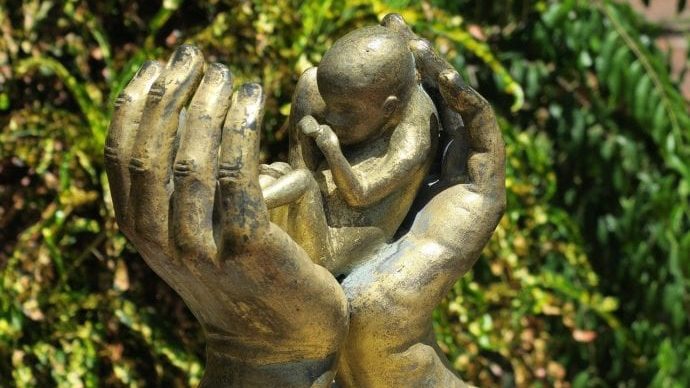Gibraltar will need “all the courage and strength of Hercules” if it is going to keep its pro-life protections after a March 19 abortion referendum, according to the UK’s Lord David Alton.
The British overseas territory is on the tip of the Iberian Peninsula, overseeing the strategic Strait of Gibraltar, that connects the Atlantic Ocean to the Mediterranean Sea.
It currently has the strongest pro-life protections in Europe, with those found guilty of violating its abortion law facing life in prison.
Over 72 percent of the territory’s 32,000 people are Catholic, but there is pressure to change the territory’s abortion laws, especially after abortion was imposed on Northern Ireland by the British parliament last year.
In July 2019, the Gibraltar Parliament voted to allow abortion in some circumstances in the territory, but a pro-life petition signed by over 6,000 people convinced the parliament to hold a referendum on the new law.
The proposed legislation would allow a woman to terminate her pregnancy where her mental or physical health was at risk before the 12th week of pregnancy, and later if the unborn child suffers from undefined “abnormality.”
Alton addressed a pro-life rally in Gibraltar’s Grand Casemates Square on Feb. 6.
“Science teaches us that life begins at fertilization. And science has moved on dramatically since abortion was legalized,” he said, referring to the 1967 Abortion Act that legalized abortion in most of the United Kingdom.
“When the UK’s obsolete limits were being set, we didn’t know what was happening in the womb. We do now. This is a law which flies in the face of science and humanity. Today we know so much more about the undeniable humanity of the child in the womb,” he said.
In a statement issued on his blog after the event, Alton said he couldn’t help thinking about Gibraltar’s extraordinary story: Its strategic importance, and what it has represented “across endless pages of history.”
“During the Second World War, having sailed with thousands of others from Liverpool, my late father came through the Straits of Gibraltar as a young soldier in the Eighth Army,” he wrote.
“For his generation, Gibraltar - the Rock - was the iconic bastion, the fortress which represented Britain’s determination to resist the overwhelming destruction of Europe by fascism. It stood emblematically as a last redoubt in a dark and dangerous time,” he continued.
“Even in antiquity, Gibraltar - one of the two Pillars of Hercules - represented the furthest outpost of the known and civilized world,” Alton added.
“Today, Gibraltar will need all the courage and strength of Hercules if it is to resist their attempts to barbarize its medical services by permitting the destruction of babies in the womb,” he wrote.
Alton claimed Gibraltar’s new law would effectively allow abortion on demand, as has happened in the UK.
“Lay people and even lawyers reading the proposed new law may think that it has many checks and balances but the UK’s experience is that they are not worth the paper on which they are written. That’s why there are 600 abortions every working day in the UK’s charnel houses. It’s why Gibraltar should vote No,” he said.
Last year, the British parliament imposed abortion on Northern Ireland, which was exempt from the 1967 Abortion Act.
The pro-life protections were removed in a series of amendments to the Northern Ireland (Executive Formation) Bill, that had the primary function of dealing with the exercise of government functions in Northern Ireland, since the province’s self-governing executive collapsed due to inter-party conflicts in 2017.
Alton noted that even though Gibraltar has a functioning self-government, some legislators had argued the British government would impose abortion on the territory if Gibraltar’s parliament didn’t do so itself.
“That is simply not true and, in any event, it would be deeply offensive for a territory which rightly boasts of having self-determination to be treated like a 19th century colony of the UK,” he said.
“Voters in the forthcoming referendum must not think that they are under duress from London - if it is, then the Gibraltar government should say who in the UK is telling it to conform to a law and ethical code which is contested all over the world,” Alton continued. “Be clear, neither the UK Supreme Court nor its predecessors in the House of Lords have ever had jurisdiction over Gibraltar and, neither the UK Supreme Court nor the European Court of Human Rights have ever acknowledged the right to abortion.”
The Isle of Man, a Crown Dependency located between Britain and Ireland not formally part of the UK, legalized abortion in May of 2019, although the law is more restrictive than in Britain.
Currently, abortion is widely available in most of Europe, although most European countries have more restrictions than exist in the United States, which has some of the most permissive abortion laws in the world.
Abortion is illegal in the European countries of Malta, San Marino, Liechtenstein, Andorra, and Vatican City; it is legal only in very limited cases in Poland and Monaco.

